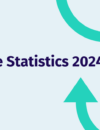
We are one third of the way through 2023, and already we are seeing some of the largest redundancy figures in certain sectors in years.
Digital behemoths, including Google, Twitter and Facebook, have been cutting their workforces, laying off more than 10,000 employees so far in 2023. Other household names, including Amazon, Microsoft, and even lockdown legend Zoom have been going through the process, too. Meta is planning to cut 10,000 jobs over the next few weeks, after having cut 11,000 roles at the end of 2022. Even Netflix can’t escape unscathed.
While we are focusing on tech and digital here, it’s fair to mention that other sectors are suffering too. Retail Gazette reports that “nearly 15,000 jobs have been lost in retail so far this year in the UK”, and mere weeks ago Buzzfeed closed its News department, leaving talented journalists and editors to find themselves looking for new roles elsewhere. Small organisations aren’t escaping lightly, either; we’ve mentioned household names, but plenty of startups are also struggling.
This is, indeed, awful news – particularly coming after a ‘boom’ of tech recruitment as companies expanded rapidly in recent years, possibly because of the increasingly online life we led during lockdown.
However, while this is devastating in itself, we want to highlight the inequality that can be found deeper within these layoffs.
A report from Revelio Labs showed that, in 2022, “Black and Latino workers represented 7.42% and 11.49% respectively of the tech layoffs — disproportionally high compared to their representation in the sector, each making up less than 10%. In Protocol’s June 2022 newsletter, they expand on this subject by quoting Kanarys’ CEO and co-founder Star Cartert, stating that “Layoffs can disproportionately affect women and people of colour when companies don’t have diversity spread throughout the organisation.”
So why are global majority team members, and those from underrepresented groups, so much more likely to be victims of redundancies in times like this?
It could be down to the idea of ‘last in, first out’ – or removing the most recently recruited roles first, as they are less embedded in the company. If an organisation has just improved their recruitment process and increased the diversity of its team, those new recruits are likely to suffer when cuts need to be made.
It’s also more likely that those in non-managerial positions, or not in positions of power within the organisation, will be impacted. In a previous blog post, we shared that “ethnic minority employees hold only 1 in 16 top management positions in the UK”, and there are barriers to other protected characteristics, too. If colleagues in ‘lower levels’ within organisations are more at risk of losing their jobs, they’re more likely to affect those protected characteristics in turn. Curtis Bunn writes for Yahoo: “More inclusive representation can be concentrated in the entry-level and in what are considered to be ‘nonessential’ roles.”
This indicates that there is still a lack of diversity across organisations when it is mainly concentrated in certain roles and levels of work and isn’t spread throughout the organisation.
After the murder of George Floyd in 2020, there was a push for more diversity in the workplace and a spike in the recruitment of EDI specialists within organisations. Just three years on, and these very roles are under threat. Curtis Bunn adds: “Instead of creating fair opportunities and a comfortable work culture for Black employees, a pair of recent reports indicate, DEI professionals are losing their jobs, as layoffs across the economy have gained momentum.”
According to Zippia, white people make up the majority of diversity officers (which in itself is an issue) though women are in turn more likely to be in these roles, meaning that women are also significantly at risk of redundancy in such situations. Gender imbalance is also seen in the vulnerability of women through being more likely to work in part-time or lower-level, flexible roles thanks to childcare limitations.
However, to quote Curtis Bunn again, there are potentially two other reasons why EDI leaders are significantly affected: “a lack of support from higher-ups and the hiring of workers who have little or no experience in executing this specialised job”.
This combination of poorly planned and reactive EDI strategy in the wake of a huge social incident, the relative newness of these roles, and the lack of embedded, authentic EDI beliefs and prioritisation within organisations make these positions particularly vulnerable. The fact that these roles are seen as so expendable when times get hard proves there is still an incredible amount of work to be done to change the attitude towards EDI in the workplace. It is still seemingly at surface level, and not a long-term commitment, for so many.
The fact that underrepresented groups are being hit harder by these layoffs has a huge impact, on both the employees themselves, and the organisations, too. These employees will have initially had to overcome the barriers and challenges of getting a job in the first place: with more limited access to mentoring and training, obstacles in the way of education, and overcoming unconscious biases. To be made redundant means to face these challenges all over again, though this time they will be further amplified by a challenging economy and scaled-back recruitment opportunities from companies cutting costs. Surely this will push progress in terms of equality within the world of work even further.
Add to this the fact that we are still a long way off from improving equality and diversity across sectors, particularly within tech, and it’s a perfect storm for an increase in unemployment for these protected groups – groups which are already struggling in the first place.
Likewise, organisations that have had to let employees go – employees who are more likely to be from underrepresented backgrounds – will be losing valuable talent. We’ve written a few times about how making the recruitment process more inclusive can be a huge boost for companies. This will simply be another blow to the organisation’s overall success.
These are turbulent times, and much in the same way that the pandemic pushed gender equality back years in terms of progress, this boom in layoffs, especially within tech, could make pushing forward with improving parity in the workplace even harder than it was before.
At Druthers, it’s our mission and our passion to empower organisations to find the best person to make an impact on their work, from a diverse shortlist of remarkable talent. Get in touch with us to find out how your business can make a positive change to your hiring and retention processes.





